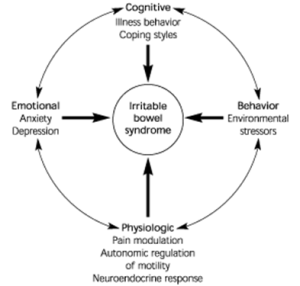Cognitive Behavioural Hypnotherapy; training at the College of Cognitive Behavioural Therapies.
At our college, we train people in CBH using cognitive and behavioural theories and frameworks such as Rational Emotive Behaviour Therapy (REBT) which was developed by Albert Ellis. We also use other cognitive and behavioural therapies such as Cognitive Therapy, developed by Aaron Beck. So, CBT is the base theory and framework for integration with hypnosis. Cognitive Behavioural Therapy (CBT) is a talking therapy. At the heart of CBT is the premise that what people think can affect how they feel and how they behave. Within this broad definition are a number of cognitive behavioural psychotherapies such as Behaviour Therapy (BT), Cognitive Therapy (CT), Rational Emotive Behaviour Therapy (REBT), Mindfulness Based Cognitive Therapy (MBCT) and Acceptance and Commitment Therapy (ACT) to name but a few.
The two pioneers of CBT, Albert Ellis and Aaron Beck, shared the view that most disturbances arise from faulty thinking and that the remedy is to be found in corrective actions. Both concentrate on present problems and present thinking in contrast to the earlier forms of psychotherapy. Also, both recommended the inclusion of behavioural exercises as key in effective change.
The CCBT course covers Ellis’s REBT model of emotional disturbance first for three reasons; firstly Ellis’s model deals with symptom treatment and advocates a philosophy of healthy living, in contrast to Beck’s model which primarily focuses on symptom treatment only. Secondly, Ellis’s model does not shy away from targeting and disputing client’s most disturbing events from the outset of therapy, whereas Beck’s model focuses on reality testing. The REBT model deals with the client’s ‘what if?’ question. Thirdly, there seems to be a convergence among Beckian therapists towards following one of the central pillars of the Ellis model; that of disputing rigidly held beliefs.
Cognitive Behavioural Hypnotherapy (CBH)
CBH is the practice of hypnotherapy, using the structure and philosophy of Cognitive and Behavioural Therapy (CBT) as the backbone of the therapy. It combines CBT and clinical hypnosis to become a form of psychotherapy. Counselling skills are also used, a full case history is taken, a therapeutic alliance established, problems and goals defined, any misconceptions dealt with, and therapeutic strategies clinically developed and implemented. A typical CBH session would comprise of both hypnotic and non-hypnotic parts. Hypnotherapists who work with CBH should develop a solid understanding of the theory and process of cognitive behavioural therapies and their therapeutic use in hypnosis. They also need to make a thorough clinical assessment of the client’s problem/s and learn how to integrate other psychotherapeutic approaches into the CBH framework. You can argue that CBH is integrative as opposed to eclectic hypnotherapy, in addition to the use of direct suggestions, the therapist may draw on inner child work, regression or ego states therapy to name but a few. However all of these approaches are firmly underpinned by the CBT structure and philosophy.
CBH also involves therapeutic work outside the trance state. From the outset, clients learn the core cognitive and behavioural skills of challenging unhealthy beliefs and strengthening their healthy counterparts. Other work may include the use of counselling skills, psychological education, assertiveness exercises and role playing. According to Kirsch et al. 1993, the average client receiving cognitive behavioural hypnotherapy, improved further than at least 80% of clients receiving cognitive behaviour therapy only.
To find out more or retrain in CBH please go to our website www.cbttherapies.org.uk and request a prospectus.











